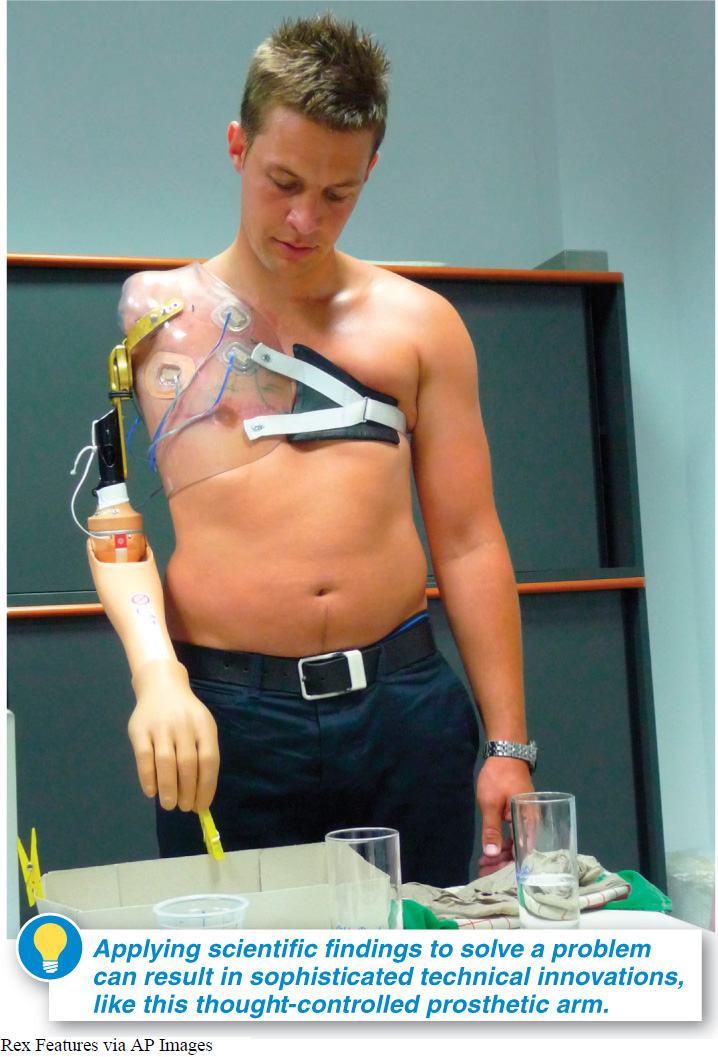The scientific method is a framework that helps us make sense of what we see, hear, and read in our lives. There are limits, however, to what science can do.
The scientific method will never prove or disprove the existence of God. Nor is it likely to help us understand the mathematical elegance of Fermat’s last theorem or the beauty of Shakespeare’s sonnets. As one of several approaches to the acquisition of knowledge, the scientific method is, above all, empirical. It differs from non-
30
Further, much of what is commonly considered to be science, such as the construction of new engineering marvels or the heroic surgical separation of conjoined twins, is not scientific at all. Rather, these are technical innovations and developments. While they frequently rely on sophisticated scientific research, they represent the application of research findings to varied fields such as manufacturing and medicine to solve problems (FIGURE 1-24).

As we begin approaching the world from a more scientific perspective, we can gain important insights into the facts of life, yet must remain mindful of the limits to science.
TAKE-HOME MESSAGE 1.18
Although the scientific method may be the most effective path toward understanding the observable world, it cannot give us insights into the generation of value judgments and other types of non-
Though science is beneficial in many ways, it is limited and cannot address all issues of importance. Name one such area in which science is unlikely to be of assistance.
The scientific method cannot give us conclusive information about phenomena that cannot be measured. For example, science cannot solve ethical problems, prove or disprove assertions of faith, or comment on subjective values, such as beauty. You may be able to think of other examples.
31